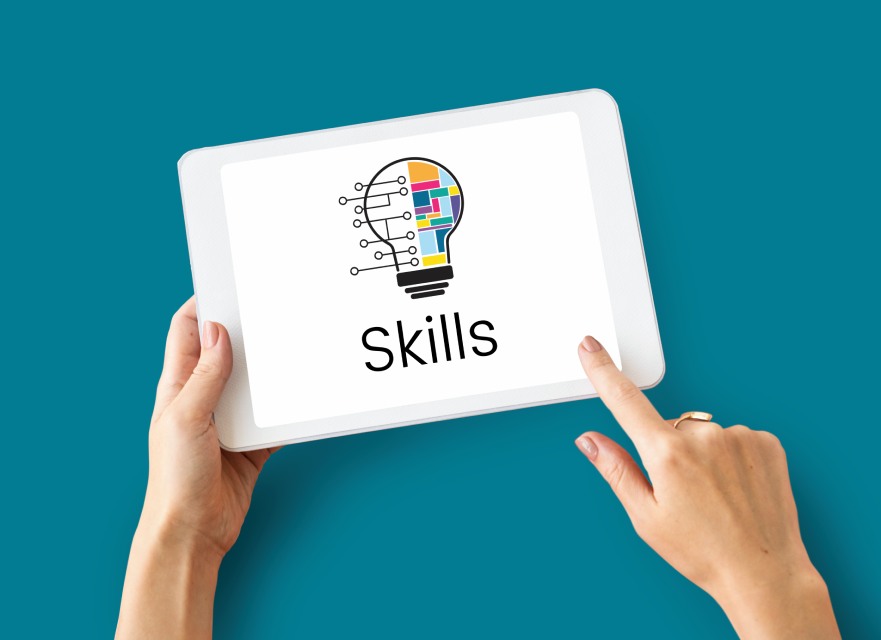Enhancing digital skills is now crucial for professional success, no less so for Personal Assistants. Staying on top of the latest online trends and constantly developing new tech skills can provide a real competitive edge in a competitive job market. Here Dakota Murphey, a freelance writer on workplace culture and career development, discusses how Personal Assistants can enhance digital skills and develop their digital toolkit.
With administrative tasks becoming ever more automated and employers seeking specialised abilities like social media marketing or data analysis, Failing to regularly upgrade your digital skills carries a strong risk of getting left behind. Here, we’ll take a look at the growing necessity for you to boost your digital literacy in order to remain invaluable in the workplace, together with the latest developments in your field driven by technology, such as the rise in automation and remote work.
The importance of staying on top of digital skills
In an increasingly competitive job market, it is more crucial than ever for PAs and VAs to stay on top of their professional development with digital skills proficiency. Given the administrative field is becoming more challenging, upgrading your technical abilities is essential to stand out from the crowd and prove your worth to employers. PAs and VAs who fail to continually enhance their digital literacy risk quickly becoming outdated as new technologies and software programs emerge.
Employers today are seeking adaptable professionals who can keep pace with our rapidly digitising workplaces. As numerous administrative tasks get increasingly automated by AI and algorithms, human PAs and VAs need specialised digital skills like data analysis, graphic design and social media management to remain relevant and flexible. Demonstrating cutting-edge technical literacy and the ability to quickly learn new programs is key to thriving in the modern office. In short, persisting in developing your digital literacy is now a basic requirement for any PA or VA striving to advance their career.
This field of work is being impacted by several major technology trends that professionals must keep pace with. Here are the pivotal trends shaping the digital landscape of administrative work:
- The increasing use of artificial intelligence and automation: Technology is increasingly handling routine administrative tasks like scheduling, data entry and expense reports. PAs and VAs need skills like critical thinking and relationship building to provide real value.
- Remote and hybrid arrangements are now common practice: Innovations in videoconferencing, cloud storage and messaging apps fully enable flexible work. Professionals in this space must master these technologies to stay competitive.
- Specialised skills are in demand: Experience in such areas as search engine optimisation, coding skills and data analytics, are increasingly necessary to secure a role. Identifying high-value skills and gaining certifications in these core areas is crucial to stand out.
Overall, continually learning about and implementing emerging technologies is now essential, but while the process may seem daunting, it’s easier than you may think to keep your digital literacy skills at the right standard.
5 tips for keeping up to date with digital skills
1. Stay up to date with changing trends
In the fast-moving digital landscape, new technologies and updates to existing software emerge constantly. As a PA or VA, it is essential to learn how to use new tools and platforms as soon as they become prevalent in your industry. For instance, when Google Analytics 4 (GA4) was introduced in 2020 as an upgrade from Universal Analytics, employees needed to get up to speed quickly in order to leverage GA4’s enhanced capabilities.
Likewise, when new social media platforms take off or collaboration tools disrupt the project management sphere, administrative professionals must be ready to adopt them faster than anyone else in the organisation. Set aside regular time to stay in-the-know about major software updates by signing up for release notifications, industry newsletters and refresher courses to renew your skills with new iterations. Never assume you know all about a tool just because you used a past version – stay perpetually curious.
2. Assess your current level
Before creating a learning plan, it is important to honestly assess your existing digital literacy skills. Look at frameworks like the Digital Literacy Framework which outline key competencies like data literacy, communication, collaboration, critical thinking, social awareness and more. Score yourself in each area or consider taking online quizzes to test your proficiency with major platforms and tools used in your field. Ask colleagues, managers and mentors to evaluate your technical abilities and identify any gaps.
It’s also worth reviewing job listings to see what skills are in high demand. By analysing your digital strengths and weaknesses, you can create targeted goals for improvement and a tailored learning plan. Be specific in prioritising areas which need work. Regular self-assessment will help measure your progress over time. Know where you stand now to chart where you want to go next.
3. Learn new software programs
One of the most effective ways to build your digital literacy is by taking online courses in new software programs and digital tools as they emerge. The rise of e-learning platforms like Udemy, Coursera and LinkedIn Learning provide affordable, accessible opportunities to gain certifications and training in hundreds of applications. Investing a few hours each week or even a month to take online classes in coding, data analytics, project management, social media marketing and more can expand your technical abilities enormously.
Completing online courses also looks impressive on your CV and provides valuable hard evidence of your skills to make you stand out. Be proactive in seeking out cutting-edge courses relevant in your industry and sign up for online training courses in new tools as soon as possible. Completing even short e-learning modules regularly will dramatically boost your digital proficiency over time.
4. Dedicate regular time to personal development
Skill gaps are constantly widening, so being consistent with personal development is essential. Conferences, webinars and other industry events provide invaluable opportunities to stay on top of the latest technologies and best practices. Make it a priority to attend relevant conferences in your region or online annually, and look for sessions covering emerging digital skills and take extensive notes.
Following experts and thought leaders in the PA/VA sphere via blogs, podcasts and social media can also expose you to new tools and trends between events. Most importantly, dedicate time each week to proactively building your technical skills and knowledge. Set aside a few hours to take online courses, navigate new programs, watch tutorial videos, practice using new software features and generally sharpen your expertise. Continuous learning takes effort but is crucial to not fall behind. Invest in yourself by carving out regular time to upgrade your digital literacy.
5. Apply your skills
Learning emerging technologies is useless unless you actually put those skills into practice. Look for opportunities to apply your digital knowledge to your work projects. Applying your new-found knowledge is the best way to remember your learnings but also to practise these skills.
Highlight what you have learned by applying the digital skills to optimise workflows, create visually engaging deliverables, improve research and analysis, collaborate remotely and just to showcase your capabilities.The more you implement, the more adept you will become. The ultimate goal is not just digital literacy but digital fluency, where applying emerging technology comes naturally. So, make sure your knowledge is put to good use.
Boosting digital skills and technical abilities is no longer optional for succeeding in our careers – it is mandatory. In today’s increasingly competitive, automated and digitised workplace, you must make continuous learning and skill enhancement a top priority. By perpetually honing your digital literacy, you’ll not only adapt to the evolving demands of the job market but also pave the way for future opportunities.










